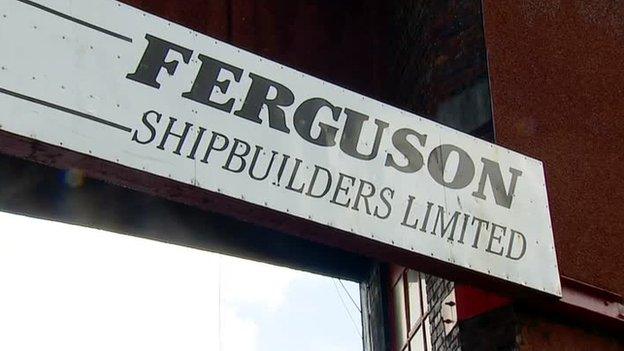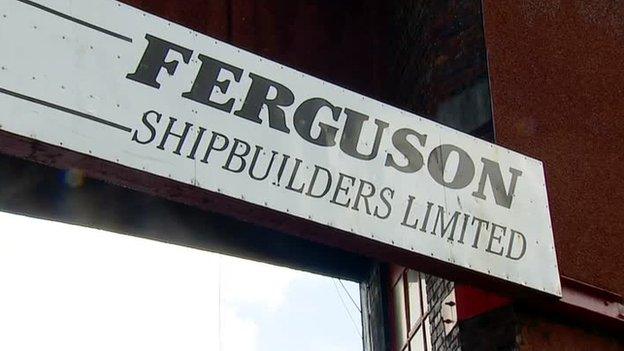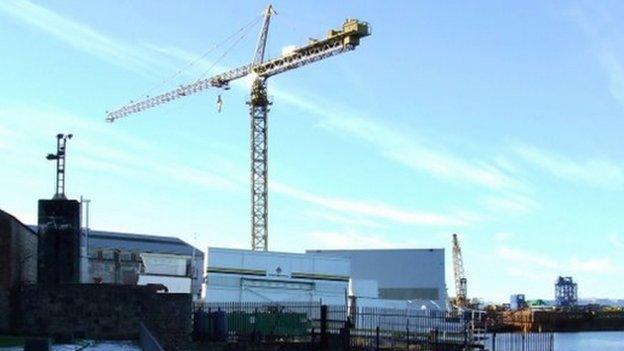John Swinney says saving Ferguson Shipyard is the 'absolute priority'
- Published

Administrators made 70 of the 77 staff at Ferguson Shipbuilders redundant on Friday morning
The Scottish finance secretary has said he has not given up hope of the last commercial shipyard on the River Clyde being saved.
Administrators from KPMG were called into Ferguson Shipbuilders in Port Glasgow on Friday.
Most of the 77-strong workforce were immediately made redundant.
Finance Secretary John Swinney told BBC Scotland the "absolute priority" was to "continue the shipyard function at Ferguson's".
KPMG has said Ferguson's went bust due to a lack of orders and mounting cash flow pressure.
Mr Swinney, who has set up a taskforce to help affected workers, is to visit the yard on Monday.
'Further orders'
Speaking to the BBC's Sunday Politics Scotland programme, he said there were a "lot of discussions under way" which the administrators were taking forward.
And he said "every effort" was being made to ensure shipbuilding survived at Ferguson's.
Mr Swinney said: "What I will be doing, and what I have been doing since Friday, is working with our enterprise agencies and with the administrators to try to encourage market interest in taking on ownership of the shipyard and to take it forward as an ongoing shipyard concern."
He said the Scottish government had in recent years tendered contracts for two CalMac hybrid ferries with Ferguson's.
The finance secretary added: "We intend to continue to have dialogue with any organisation that emerges with Ferguson's about any further orders that may be able to be taken forward."
Under EU rules, governments must put contracts for commercial ships out to competitive tender.
Labour MP Jim Murphy, the shadow international development secretary, called on the Scottish government to "rule absolutely nothing out" in their efforts to secure a future for commercial shipbuilding on the Clyde.
'Slipped away'
He said: "The problem here is longstanding. I was in Islay the other day and sailed back on CalMac's Finlaggan vessel that was built overseas.
"The Loch Seaforth, which is the most recent CalMac vessel, has been partially built in Germany and partially built in Poland.
"The question I think for the Scottish government is how those governments and those economies sustain commercial shipbuilding in a way that, over the past five years in particular, it seems to have slipped away in Scotland."
KPMG said on Friday that the Ferguson yard had "experienced significant cash flow pressure in recent months" and a "lack of financial strength" had effectively "hindered its ability to secure new vessel contracts from its core customer base".
Recent attempts to secure investment into the business have proved unsuccessful, the administrators said.
The GMB union has said workers were "shocked" by Friday's developments, and called on the Scottish government to intervene.
- Published15 August 2014

- Published15 August 2014
